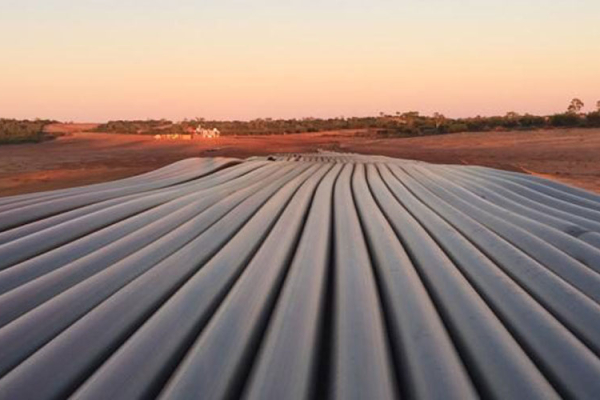
Are HDPE Pipes Better Than PVC Pipes?
Piping systems have two widely used plastic options, HDPE and PVC pipes. But the question of whether HDPE pipes are better than PVC pipes keeps confusing a lot of people. Let’s find out what these options are, which one is better, and why.
What are HDPE and PVC Pipes?
HDPE (High-Density Polyethylene) Pipes:
These are manufactured from polyethylene, a thermoplastic polymer. HDPE stands for high-density polyethylene, which makes these pipes incredibly sturdy and impact-resistant.
Pros:
-
Lasts a long time: HDPE pipes can last anywhere from 50 to 100 years.
-
Very tough: They don’t crack easily and can handle rough conditions like being buried underground or used in sewer systems.
-
Flexible: They bend more easily than other pipes, which makes installation easier—especially when digging trenches isn’t an option.
-
Handles temperature well: They work in both hot and cold conditions better than PVC pipes.
-
Good with chemicals: They can resist damage from acids, cleaners, and other harsh chemicals.
-
No leaks: The way they’re joined (by heat) makes a super-strong seal that doesn’t leak.
Cons:
-
More expensive at the start: HDPE pipes usually cost more than PVC ones.
-
Expands with heat: They can stretch more when the temperature changes, which might matter in certain jobs.
PVC (Polyvinyl Chloride) Pipes:
PVC or polyvinyl chloride, is a synthetic plastic material used to produce rigid, sturdy pipes. PVC pipes are a common sight in plumbing and drainage systems.
Pros:
-
Cheaper: PVC pipes are usually more affordable.
-
Easy to work with: They’re lighter and easier to carry and install.
-
Great for light jobs: Perfect for things like cold-water plumbing, drains, or electrical wiring.
Cons:
-
Doesn’t last as long: They usually last 25 to 50 years.
-
Can break easier: Not as tough—more likely to crack if dropped or stressed.
-
Not great in cold weather: They can get brittle and break when it’s really cold.
-
Not flexible: They’re stiff and need more connectors to fit around corners.
-
Sun can damage them: If left in the sun too long, they can weaken over time.
-
Leaks are more likely: They’re glued or fitted together, and if not done right, they can leak.
Durability: HDPE Outperforms PVC
When it comes to longevity, HDPE pipes take the lead. Here’s why:
Toughness
HDPE pipes boast exceptional impact strength and can withstand heavy loads, pressure surges, and even sub-freezing temperatures without cracking or breaking.
Flexibility
The flexible nature of HDPE pipes helps them bend and flex without compromising structural integrity. This flexibility helps them withstand ground shifts and movements better than rigid PVC pipes.
Weather Resistance
Unlike PVC pipes that can degrade from UV exposure, HDPE pipes offer outstanding weather and sunlight resistance throughout their lifespan.
Chemical and Corrosion Resistance
Both HDPE and PVC pipes offer decent chemical resistance, but HDPE takes it a step further:
HDPE pipes can handle a wider range of chemicals and corrosive substances without deteriorating. They are almost impermeable, preventing chemical leakage or infiltration that could contaminate the pipe contents. And the HDPE pipes don’t rely on chemical stabilizers like PVC, which can over time leach into the fluids.
This superior chemical resistance makes HDPE pipes perfect for industrial applications involving harsh chemicals, solvents, and oils.
A Look at Installation and Joining
HDPE wins again when it comes to ease of installation and joining methods:
Flexible and Lightweight
The flexibility and lower weight of HDPE pipes make them easier to carry and work on job sites.
Heat Fusion Joining
HDPE pipes use a heat fusion process to create leak-proof, monolithic joints that are stronger than the pipe itself. This beats the bell-and-spigot cemented joints in PVC pipes, which are more prone to leaks.
Trenchless Installation
The flexibility of HDPE allows for easier trenchless installation techniques, like pipe bursting compared to rigid PVC pipes.
Environmental Benefits
From a sustainability standpoint, HDPE scores higher than PVC:
- Recycling: While both are technically recyclable plastics, HDPE has a more robust recycling infrastructure and a market for recycled material. PVC recycling is quite limited.
- Production: Manufacturing HDPE pipes need less energy and fewer additives compared to the PVC production process, resulting in a lower overall environmental impact.
The Verdict: HDPE Prevails.
HDPE pipes are far more strong, flexible, and adaptable than PVC pipes. It does not matter if you’re a city planner, plant engineer, or contractor, you can choose HDPE pipes for your next project. Contact an HDPE solution provider to take advantage of these strong and versatile pipes.

